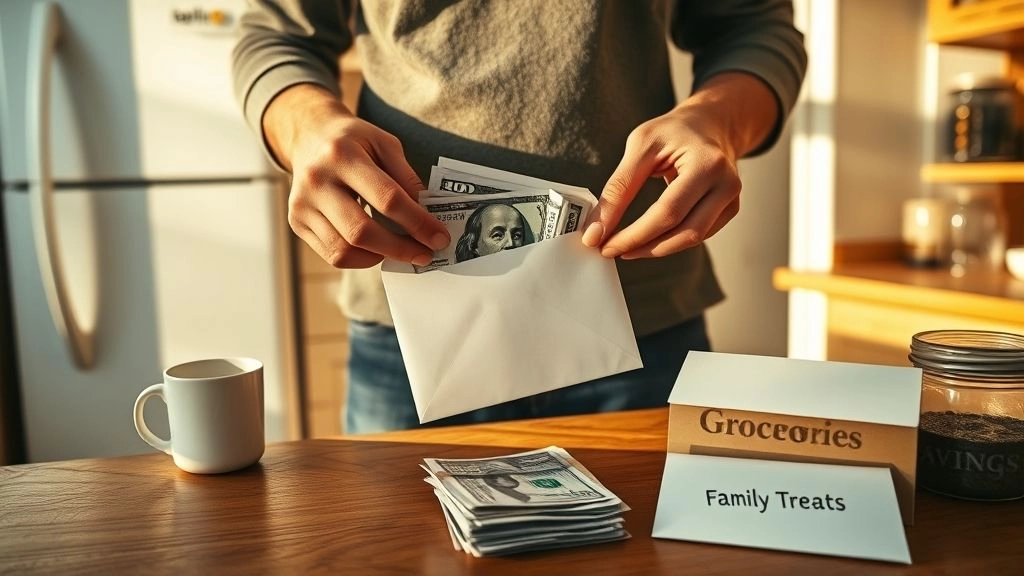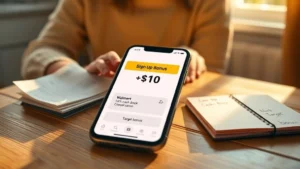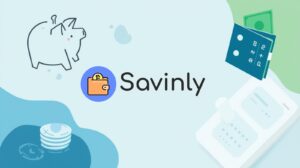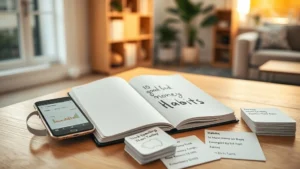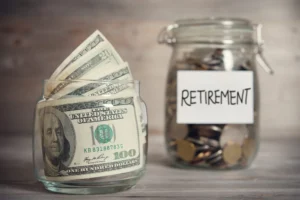Unlock Savings Secrets
Alright, friend, let’s get real for a sec. You know how everyone online says “stop buying lattes and you’ll be a millionaire”? Yeah… not exactly how money works. A few years back, I tried that whole “no fun” routine and still watched my savings dwindle. Turns out, it wasn’t the coffee—my money just leaked out of places I never noticed before. You ever feel that way?
That’s when I stumbled on this simple roadmap: the Five Foundations. Not some weird, complicated spreadsheet—just five steps. And honestly, no step surprised me more than the third one. It’s not what you think. It’s not about investing in crypto or living off beans and rice (though, hey… beans are cheap). It’s about how you spend, every single day.
Why Skip Debt Altogether?
Is My Debt Really That Bad?
Pull up a chair—let’s get cozy. Because nobody wants to hear the d-word (debt) after a long day, but let’s crack it open anyway. The first few Foundations are about basics: emergency funds, clearing out debt. You’ve probably heard all about why is it important to make an emergency fund your first financial priority. That buffer is what stops an unexpected expense from knocking you flat.
And debt… yeah. It’s rough. I watched a close friend get stuck with late fees that spiraled hard. For them, making one late payment led to their lender tacking on extra fees, which just made it harder to catch up. If you ever wonder how a credit card balance turns into a money monster, check out if you make a late credit payment, you might see the lender add charges and penalties. Been there, hated that.
So, those first two foundations? They’re just the warm-up. Now let’s get to that third step—the one that changes how you handle money for the long haul.
The Magic of Cash-Only Living
So, In The Five Foundations, What Is The Third Foundation?
Let’s spill it: The third foundation is using cash—actual, physical cash—when you buy things. Not a debit card. Not a shiny credit card that gives you points (that somehow never add up to anything). Just bills in your wallet. Sounds simple, right? It is. And strangely, that’s what makes it powerful.
Why cash? Because it makes you feel your spending. Swiping a card is easy, almost fun—it doesn’t even register. But handing over a $20 bill? Oof. You notice. It’s like watching gas leak out of your tank in slow motion. Suddenly, impulse buys don’t look as sexy.
What Happens When You Pay With Cash?
When I first started this, I figured it’d feel “old-school.” Which, okay, it does. But it also gave me this weird sense of control. If I only brought $100 to the grocery store, I couldn’t go over. No exceptions. You might be shocked by how much you rethink tossing extra snacks in the cart when you see your actual dollars slip away.
Here’s a table, just for a gut check:
| Scenario | Using Cash | Using Credit |
|---|---|---|
| Grocery Shopping | Stick to list, spend $60 max | Impulse shop, spend $90 and pay interest later |
| Date Night | Plan within budget, maybe skip dessert | Go big, deal with the bill next month |
| Savings | Money left can go into savings jar | Left with a bill—and interest paid on interest previously earned |
Raise your hand if you’ve ever had that bug-eyed shock opening the credit card bill—yeah, me too. With cash, that never happens. You never spend “invisible” money. It’s always real, always yours… until it’s gone.
My $200/Month Turnaround
Let me be honest. When I switched to cash-only for groceries, I started saving an average of $200 every month. Seriously—it blew my mind. I’d go in with envelopes labeled “groceries” and “family treats.” If the cash ran out, well… next week’s snacks had to wait. Little uncomfortable at first, but freeing. Like my wallet (and my brain) finally stopped fighting.
Why Save Now, Not Later?
What’s the Real Point?
Cash isn’t about deprivation—it’s about being in the driver’s seat. That’s why, in the Five Foundations, this third step is so clutch. Foundation one is your emergency fund. Foundation two: destroy debt. But this, the cash-for-everything rule, is how you keep moving forward instead of sliding back.
You’re not just throwing pennies in a jar for fun. There are, honestly, the three reasons to save money are—security (so surprise bills don’t wipe you out), freedom (no more handcuffs to past mistakes), and peace of mind (sleeping at night without budgeting anxiety).
How Much Should You Save?
Maybe you’re wondering: when do I have “enough”? There’s no golden number for everyone. But after the first $500 emergency cushion, the goal might be to build up three to six months of expenses in savings. Feels huge, doesn’t it? Start with tiny steps—one category, one week, one envelope at a time.
Late-night confession: I used to stash $5s and $1s in random cups around the house. Not the most organized system—but every bit added up when disaster struck (like…the water heater exploding the week after my car needed new brakes. Because, of course).
| Envelope | Amount |
|---|---|
| Groceries | $100 |
| Gas | $40 |
| Family Treats | $20 |
Anecdote: Cash-Only Family Wins
I once read about a family—two parents, three kids, regular chaos. They used envelopes for everything. When “dining out” ran empty, they picnicked at home with homemade pizza. The kids got in on saving, even suggesting cheap night-in parties. Their stress levels dropped; their emergency fund grew. It wasn’t magic. Just “boring” basics that worked. I love stories like that.
Avoiding Common Saving Slip-Ups
What Trips Us Up?
Okay, so nobody’s perfect. Sometimes, you’ll cave—swipe the card “just this once” because you forgot to hit the ATM. It happens. But here’s the trick: notice the emotional difference? Handing over cash builds discipline. Debt is sneaky. Especially when if you make a late credit payment, you might see the lender add penalties or fees… it’s a pit you slide into without realizing.
Lifestyle creep? It’s a thing. Get a raise—upgrade your phone, your car, your pizza toppings. Suddenly savings slip away, and your expenses balloon. Paying cash keeps you honest. If your “fun” envelope is empty, you get creative instead of overspending.
How Do You Track Wins?
There are a billion apps out there. Or you can keep a hand-written tally. (I tape mine to the fridge, messy chicken scratch and all.) If you’re more visual, use jars or printable trackers. Make it visible, make it yours, make it rewarding. Celebrate tiny wins: “Hey, I didn’t impulse-buy coffee all week!”
Zero to Hero in Three Months
Your progress might not feel dramatic. But maybe you save that first $100, and then another. Before you know it, your “rainy day” stash actually covers a real emergency. If you’ve ever watched interest paid on interest previously earned train-wreck your debts, you know why every bit of freedom counts.
Everyday Frugal Wins
How Can I Budget Like a Pro?
This is where the third foundation really shines. Budgeting doesn’t have to mean sacrifice and sadness. It’s just being the boss of your money. Instead of letting dollars leak out, you direct them where you want.
Reflection time: What if, for one month, you challenged yourself to pay cash for just one category—say, coffee, snacks, or entertainment? See what happens. Were your choices different? Did you save more without feeling like you missed out?
the three reasons to save money are always at play: security, freedom, peace of mind. This tiny experiment makes them real. Plus… you might surprise yourself.
Ready To Ditch Debt Mindset?
Imagine not worrying about nagging bills, random late charges, or that lurking sense that your money controls you. What would change if you swapped plastic for paper, even part-time?
Want proof? Here’s a before-and-after table:
| Before Third Foundation | After Third Foundation |
|---|---|
| Impulse swiping Always over budget | Cash envelopes Spending in check |
| Credit interest piles up | Savings grow, money stays yours |
| Stress over bills | Control & confidence |
One friend of mine used this approach to save for a vacation. Instead of putting charges on a card, they stuffed whatever cash they could spare into a “beach getaway” envelope. A year later, they paid for the trip outright—no debt monster waiting at home.
Wrapping Up Your Foundation Journey
You’ve made it this far, so take a second and breathe. In The Five Foundations what is the Third Foundation? It’s that moment you stop letting plastic and debt run your life, and start calling the shots yourself—by paying cash, every single time. The first steps (emergency fund, debt payoff) build the safety net, but this is the habit that keeps your savings safe and your future open.
Let’s be real—nobody’s perfect. You’ll mess up, swipe a card, forget your budget. But every time you pull out cash and see those dollars leave, you’re rewiring your money habits… and your future. Remember the three reasons to save money are simple: stay safe, buy freedom, find peace.
This week, pick one spending area and try going cash-only. Tell someone about it. Or drop your story in the comments—let’s root for each other! Because frugal living isn’t about going without… it’s about finally having enough, and feeling good about how you got there. So what’s your next step? Envelope out, cards tucked away, here you go—the start of something new.

